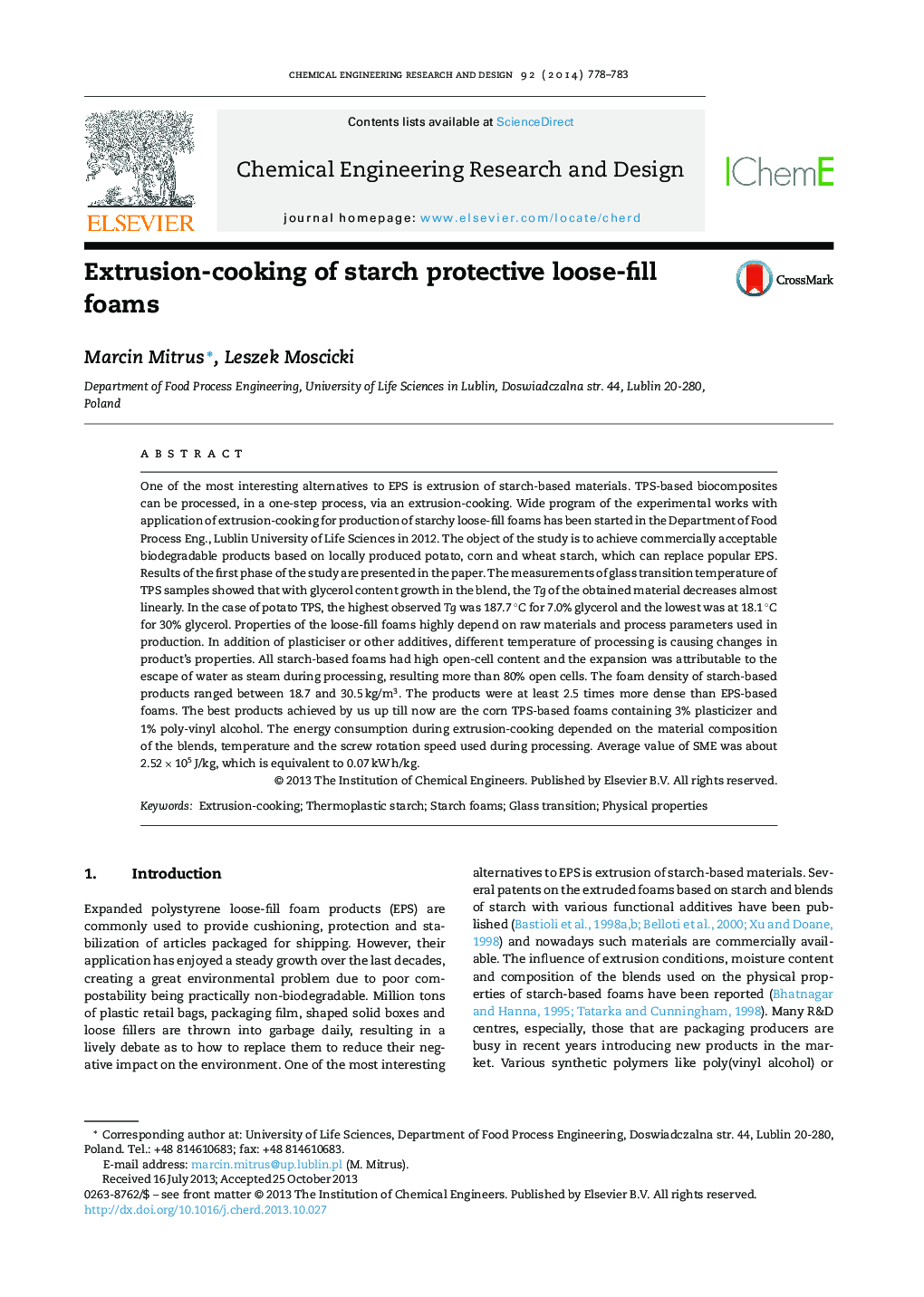| کد مقاله | کد نشریه | سال انتشار | مقاله انگلیسی | نسخه تمام متن |
|---|---|---|---|---|
| 10385168 | 882555 | 2014 | 6 صفحه PDF | دانلود رایگان |
عنوان انگلیسی مقاله ISI
Extrusion-cooking of starch protective loose-fill foams
ترجمه فارسی عنوان
اکستروژن-پخت و پز از پرچم حفاظت نشاسته فوم
دانلود مقاله + سفارش ترجمه
دانلود مقاله ISI انگلیسی
رایگان برای ایرانیان
کلمات کلیدی
اکستروژن-پخت و پز، نشاسته ترموپلاستیک نشاسته فوم انتقال شیشه، مشخصات فیزیکی،
موضوعات مرتبط
مهندسی و علوم پایه
مهندسی شیمی
تصفیه و جداسازی
چکیده انگلیسی
One of the most interesting alternatives to EPS is extrusion of starch-based materials. TPS-based biocomposites can be processed, in a one-step process, via an extrusion-cooking. Wide program of the experimental works with application of extrusion-cooking for production of starchy loose-fill foams has been started in the Department of Food Process Eng., Lublin University of Life Sciences in 2012. The object of the study is to achieve commercially acceptable biodegradable products based on locally produced potato, corn and wheat starch, which can replace popular EPS. Results of the first phase of the study are presented in the paper. The measurements of glass transition temperature of TPS samples showed that with glycerol content growth in the blend, the Tg of the obtained material decreases almost linearly. In the case of potato TPS, the highest observed Tg was 187.7Â ÌC for 7.0% glycerol and the lowest was at 18.1Â ÌC for 30% glycerol. Properties of the loose-fill foams highly depend on raw materials and process parameters used in production. In addition of plasticiser or other additives, different temperature of processing is causing changes in product's properties. All starch-based foams had high open-cell content and the expansion was attributable to the escape of water as steam during processing, resulting more than 80% open cells. The foam density of starch-based products ranged between 18.7 and 30.5Â kg/m3. The products were at least 2.5 times more dense than EPS-based foams. The best products achieved by us up till now are the corn TPS-based foams containing 3% plasticizer and 1% poly-vinyl alcohol. The energy consumption during extrusion-cooking depended on the material composition of the blends, temperature and the screw rotation speed used during processing. Average value of SME was about 2.52Â ÃÂ 105Â J/kg, which is equivalent to 0.07Â kWÂ h/kg.
ناشر
Database: Elsevier - ScienceDirect (ساینس دایرکت)
Journal: Chemical Engineering Research and Design - Volume 92, Issue 4, April 2014, Pages 778-783
Journal: Chemical Engineering Research and Design - Volume 92, Issue 4, April 2014, Pages 778-783
نویسندگان
Marcin Mitrus, Leszek Moscicki,
